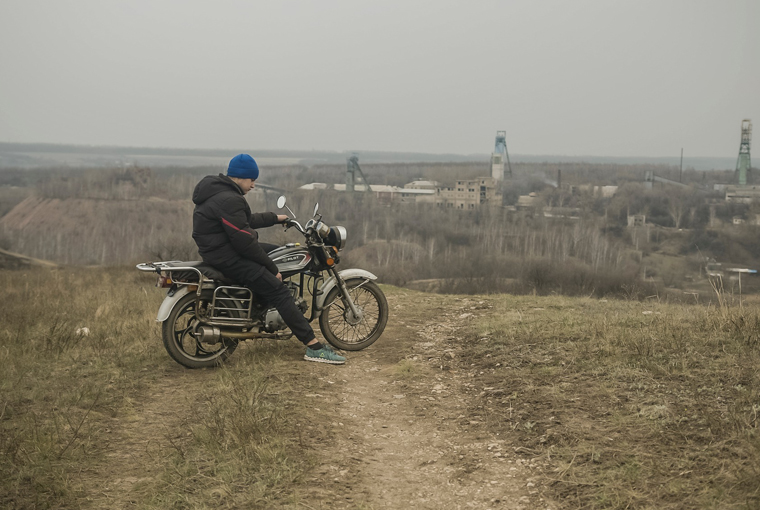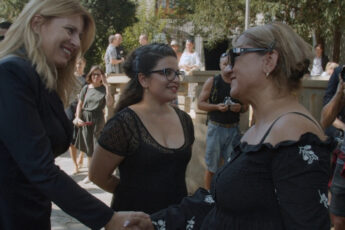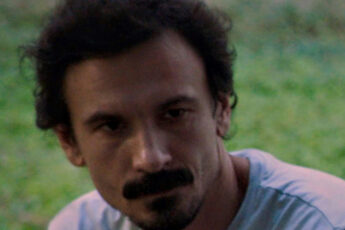
As the Berlinale kicked off on February 16, we are excited to provide our readers with reviews and interviews on the event’s selection of Central, Eastern, and South-Eastern European films. During the last two years, we have also used the event as an occasion to report and reflect on the precarious conditions of the festival’s employees and in particular on the festival’s absurd wage ratio, the proportion of the top salaries to those at the bottom. The economic reality of the festival continues to represent a form of institutionalized hypocrisy. While the festival prides itself for selecting films of political importance (this year the festival organized two side events in solidarity with Ukraine and Iran), it is blind towards the inequality of its own wage policies. Indeed, the one may draw the attention away from the other.
In France, the collective of precarious festival workers (Collectif des précaires des festivals de cinema) recently circulated a survey study according to which most respondents work for several festivals at once, earn below 1500,- Euros per month and accordingly need to maintain side jobs to make ends meet. A study conducted in Germany confirms these findings. About half of respondents work at two or more film festivals per year, and 81% report working more than one job at the same festival, with slightly less but nevertheless 38% of respondents reporting that they rely on other sources of income outside the industry.
The idea that cultural work is economically less valuable and something to be pursued out of passion seems to be priced into the salaries of a majority of those working in the festival sector. It also disproportionately affects women, with the German study reporting an unbalanced gender distribution. In an interview for the European Endowment for Democracy, Drita Llolla, the director of the Seanema film festival in Ulcinj, Montenegro admits that “patriarchal attitudes imply that cultural work such as organizing film festivals is often considered ‘not real work’”. This response masks a fundamental feeling of schizophrenia in how cultural work is perceived and valued, as well as the odd claim that working for a film festival is somehow fake.
Indeed, the narrative supporting the precariousness of festival work is somewhat similar to that used to justify unpaid housework and the underpaid care economy. People are regarded to be fortunate to be able to do what they love. Instead of compensation, they are said to receive opportunities, adventures, and leisure. It would be morally wrong to monetize care and recreation. Culture, just as family and love, should not have a price. In this sense, narratives of supposed privilege are employed to define work as not genuine. Cultural work, like housework, is not regarded as real work because its products are or shouldn’t be for sale, not for the market, and so it does not need to be paid since it is done as part of a relationship.
To what extent the festival workers have internalized this narrative is hard to assess. The festival sector is just beginning to be studied and basic data, such as national employment numbers, are lacking from official reports. A union in Germany for film festival workers has been created in 2016 and the French collective for precarious festival workers founded in 2020 seems to be a step towards further unionization. This could be a solid basis for negotiating fairer wages, especially as traditional movie theaters and hence steady employment opportunities are losing ground. Indeed, events such as festivals may be replacing traditional repertory and art house cinemas. Between the end of the 1990s and today, film festivals in Germany have quadrupled from slightly over 100 to over 400. With festivals thus becoming an ever more important employer, it is high time to rethink employment conditions in the festival sector.
***
As announced above, in this month’s issue we are launching our coverage of this year’s Berlinale. For starters, Zoe Aiano saw Alisa Kovalenko’s engagement with the youth in a Ukrainian community that has since been uprooted by war. They also discussed the painful process behind developing We Will Not Fade Away. An equally painful theme is at the center of Juraj Lerotić’s Safe Place, which screened at the Thessaloniki International Film Festival last November and whose story was based on the suicide of the director’s brother. Ana Grgić reviewed the engaging film and spoke to the filmmaker about his aesthetic choices in addressing such a sensitive topic. Another two investigations into painful personal journeys, albeit historical ones, complete our February issue. Alice Henaghan discusses How I Became a Partisan, in which Vera Lacková inquires into the story of her grandfather and the forgotten fate of Roma during WWII. Last but not least, we are publishing an in-depth essay by McKenna Marko on Danilo Kiš’s Bare Life, an all but forgotten document of Yugoslav history and Yugoslavia’s women in particular.
We hope you enjoy our reads.
Konstanty Kuzma & Moritz Pfeifer
Editors




Leave a Comment